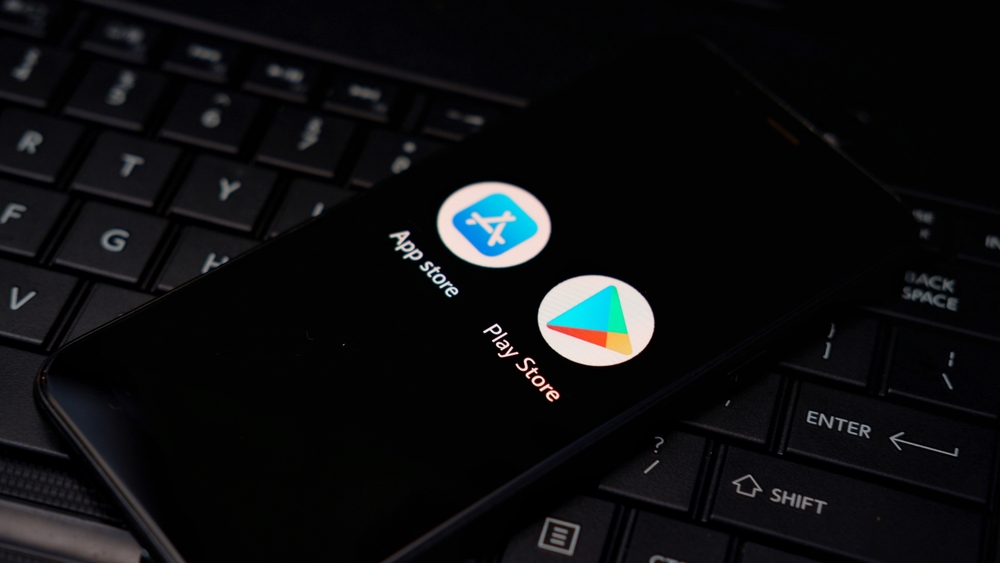
Unleash Your App's Potential: Proven Strategies for Mobile App Marketing Success

In today's fast-paced digital world, mobile app development has become a lucrative industry. With millions of apps available across various platforms, standing out from the crowd can be a challenging task. Your brilliant app idea needs more than just great functionality; it requires a well-planned marketing strategy to reach your target audience effectively. In this article, we will explore proven strategies to unleash your app's potential and achieve mobile Android or iOS app marketing success.
The Importance of Mobile App Marketing
Before we delve into the strategies, let's establish why mobile App Store or Google Play app marketing is essential. A well-executed marketing campaign helps your app gain visibility, attract users, and ultimately increase downloads and revenue. Without proper marketing efforts, your app might remain hidden in the vast app stores, resulting in a missed opportunity for success.
1. Define Your Target Audience
Understanding your target audience is crucial for effective mobile iOS or Android app marketing. Conduct thorough market research to identify the demographics, interests, and behaviors of your potential users. This will enable you to tailor your marketing messages and reach the right people at the right time.
Utilize analytics tools to track user data and gain insights into your existing user base. Analyzing user behavior, preferences, and engagement patterns will help you refine your marketing strategies and optimize user acquisition and retention.
2. Optimize Your App Store Listing
Your app's store listing is the first impression potential users have of your app. Make sure to optimize it to maximize downloads. Here are some key areas to focus on:
- App Title and Description: Use relevant keywords in your app title and description to improve search visibility. Clearly highlight your app's unique selling points and benefits.
- App Icon: Create a visually appealing and memorable icon that reflects your app's purpose and stands out among the competition.
- Screenshots and Videos: Showcase your app's features and user interface through high-quality screenshots and engaging videos.
- User Reviews and Ratings: Encourage satisfied users to leave positive reviews and ratings, as they play a significant role in convincing potential users to download your app.
3. Implement App Store Optimization (ASO)
App Store Optimization (ASO) is the process of optimizing various elements of your app's store listing to improve its search rankings and visibility. By following ASO best practices, you can increase organic app installs. Here are some key aspects to consider:
- Keyword Research: Identify the right keywords relevant to your app and include them in the app title, description, and other metadata.
- Localized Metadata: Customize your app's metadata for different regions and languages to target specific markets effectively.
- Optimized App Preview: Create an engaging app preview video that demonstrates your app's key features and functionality, compelling users to download it.
- Regular Updates: Stay on top of app store algorithm changes and adapt your ASO strategies accordingly.
4. Leverage Social Media and Influencer Marketing
Social media platforms provide an excellent opportunity to promote your mobile Google Play or App Store app , build brand awareness, and engage with potential users. Establish a strong presence on popular social media platforms relevant to your target audience, such as Facebook, Instagram, Twitter, and LinkedIn.
Share engaging content, including app updates, tutorials, user testimonials, and behind-the-scenes insights. Leverage targeted ads to reach specific user segments and drive app downloads. Collaborate with influencers in your niche who can endorse and promote your app to their followers, thereby expanding your reach organically.
5. Implement a Referral Program
A referral program is a powerful technique to increase app downloads and gain loyal users. Offer incentives, such as discounts, upgrades, or exclusive features, to existing users who refer your app to their friends and family. Implement referral tracking mechanisms to reward users for successful referrals. This not only encourages your existing user base to become brand ambassadors but also helps in acquiring new users through trusted recommendations.
Frequently Asked Questions
1. How long should I run a marketing campaign for my mobile app?
The duration of your marketing campaign depends on various factors, including your marketing budget, goals, and the competitiveness of your app niche. However, it is beneficial to have both pre-launch and post-launch marketing strategies in place to ensure continuous promotion and growth.
2. What analytics tools can help track user behavior and engagement?
There are several analytics tools available to track user behavior and engagement, such as Google Analytics, Flurry Analytics, Mixpanel, and Firebase Analytics. These tools provide valuable insights into user demographics, app usage, conversion funnels, and more.
3. How can I encourage users to leave positive reviews for my app?
To encourage users to leave positive reviews, make it easy for them to provide feedback. Prompt users with a well-timed in-app message requesting their review. Offer small incentives, such as in-app rewards or exclusive content, to users who leave reviews. Remember to prioritize delivering an exceptional user experience to increase the likelihood of positive feedback.
4. Should I invest in paid app promotion?
Paid app promotion can be an effective way to boost your app's visibility and reach a broader audience. However, it is crucial to carefully plan your budget, target the most relevant audience, and optimize your ad campaigns to ensure a positive return on investment (ROI).
5. How often should I update my app?
Regular app updates are essential for bug fixes, performance improvements, and feature enhancements. The frequency of updates depends on factors like user feedback, changing market trends, and new OS releases. Strive to provide a seamless user experience by addressing bugs and introducing new features regularly.
In conclusion, mobile app marketing success requires a well-rounded approach that combines understanding your target audience, optimizing your app store listing, leveraging ASO, utilizing social media and influencer marketing, and implementing referral programs. By employing these proven strategies, your app will have a higher chance of standing out and achieving the success it deserves in the fiercely competitive app market.
Other useful resources
- https://en.wikipedia.org/wiki/App_store
- https://www.appguru24.com/apps-directory/ios/